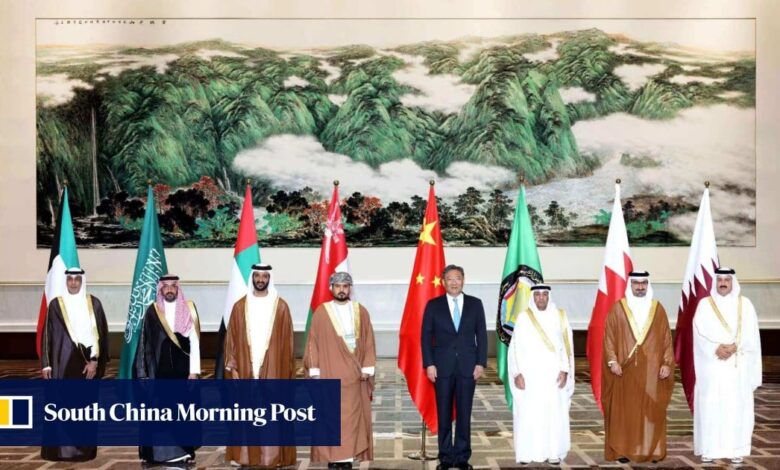China-Middle East ties: Beijing’s overtures in Arab world ‘to deepen oil-and-gas cooperation’

China is looking to cultivate new free-trade pacts and deepen energy cooperation with the Gulf Cooperation Council (GCC), commerce authorities said after a meeting involving the economic and trade ministers from China and all six GCC member states.
New trade deals are of great importance to China, which is reliant on the Middle East for oil imports – about half come from the region – and Beijing has made diplomatic overtures with Arab states in the Middle East over the past year amid tense US relations.
“China will actively advance and support bilateral sovereign wealth funds to engage in collaborative exchanges through various means,” Chinese Commerce Minister Wang Wentao said at the meeting on Sunday in the southern city of Guangzhou, according to the ministry.
“We will deepen the oil-and-gas cooperation model, strengthen and expand connectivity cooperation, and explore opportunities for infrastructure cooperation in areas such as ports, aviation, telecommunications, pipelines and more.”
China-Middle East to step up trade amid strained ties with Western partners
China-Middle East to step up trade amid strained ties with Western partners
China will also join hands with Gulf countries to advance their clean-energy transition by promoting solar, wind, nuclear, hydrogen and biomass options, while also making joint advancements in the new-energy vehicle industries, including batteries and smart charging stations, he added.
The economic union of Bahrain, Kuwait, Oman, Qatar, Saudi Arabia and the United Arab Emirates has increasingly become a crucial partner in China’s global trade strategy. But its cosying up to the Middle East has raised concerns in Washington and Brussels.
During the meeting on Sunday, China reached broad agreements with the GCC on issues such as the upholding of multilateral trade ties; promoting two-way investment; deepening industrial and supply-chain cooperation; and advancing energy transition, according to the commerce ministry.
How US tech curbs could revive China’s industrial powerhouse near Russia
How US tech curbs could revive China’s industrial powerhouse near Russia
And all agreed to better align the development strategies of GCC members with the Belt and Road Initiative, Beijing’s decade-old initiative to link economies into a China-centred trading network.
Last year’s China-Gulf Cooperation Council summit in Riyadh was the highest-level diplomatic event between China and the Arab world.
Chinese authorities have shored up efforts to boost economic ties with the region, including via calls to establish a China-Gulf free-trade zone, and to continue strengthening the “China-Gulf strategic partnership”.
In a statement last year, the Ministry of Commerce said the two sides had held 10 rounds of talks since 2005 toward a free-trade deal, and had “made positive progress”, but the status of a potential deal remains unclear.





